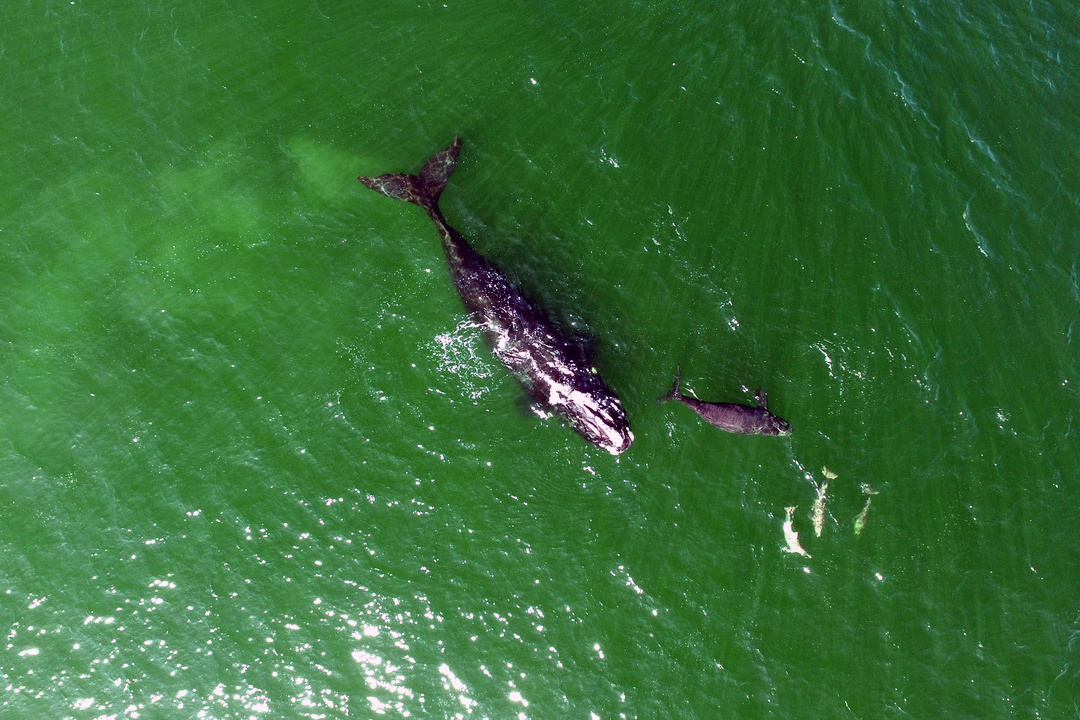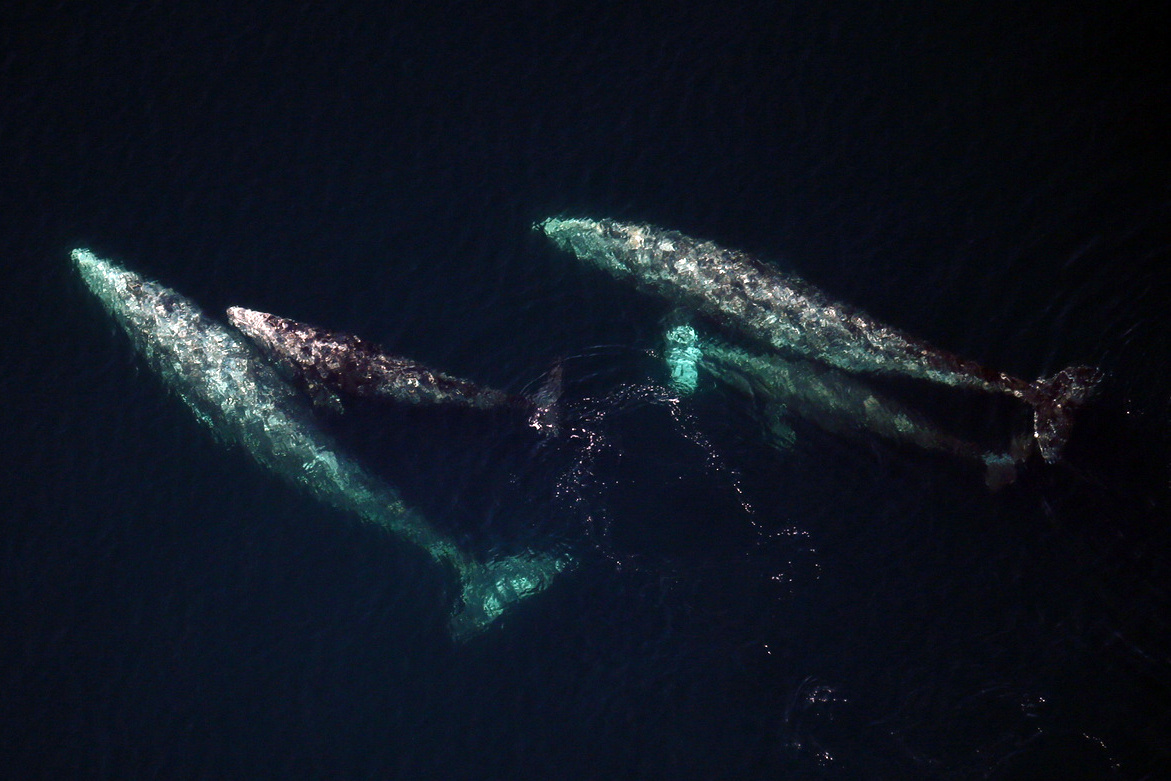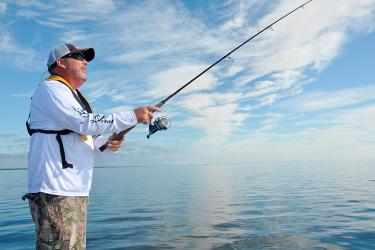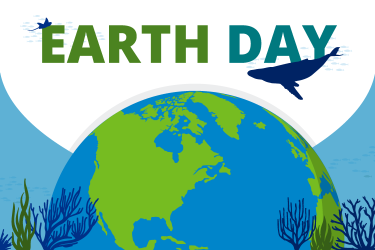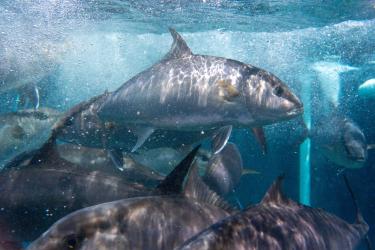Whales, dolphins, and porpoises belong to a group of marine mammals called cetaceans. NOAA Fisheries works to ensure the conservation of all cetaceans, which are protected under the Marine Mammal Protection Act. Some populations, such as the Cook Inlet beluga, North Atlantic right whale, and Southern Resident killer whale have been identified as Species in the Spotlight due to their endangered status and declining populations. We work with many partners to protect and recover species listed under the Endangered Species Act.
Join us as we celebrate Whale Week, February 10–16, 2020, leading up to World Whale Day on February 16, 2020. Check out the latest whale-related news and videos below and stay tuned for more new content throughout the week!
Latest Whale News
North Atlantic Right Whales and the Dangers of Vessel Strikes and Entanglement
North Atlantic right whales are one of the most endangered whales. They are threatened by ship strikes and fishing gear entanglements throughout their range.
Learn more about the threats to North Atlantic right whales
![rightwhale_shipstrike_reduction.jpg]()
Listening for Right Whales in the Gulf of Maine
Two passive acoustic data collection efforts are underway in the Gulf of Maine to gather information on North Atlantic right whales.
Learn more about this research
![right-sei-whales.jpg]()
New North Atlantic Right Whale Calves Born off Florida, Georgia, and South Carolina
New North Atlantic right whale calves were spotted off the coasts of Florida, Georgia, and South Carolina. As of February 12, there have been 10 new calves sighted this season.
Learn more about the most recent right whale births
![Calvin and calf CMA.JPG]()
Studying Endangered Cook Inlet Beluga Whales in Alaska
Cook Inlet beluga whales are one of five beluga population stocks found in U.S. waters. They are the only beluga population listed under the Endangered Species Act.
Read about the latest research on Cook Inlet beluga whales
![2018-08-09 19-11-23A.jpg]()
Searching for Type D: A New Species of Killer Whale?
In January, 2019, an experienced group of killer whale biologists launched an expedition from the southern tip of Chile into some of the roughest waters in the world, searching for what could be a new species of killer whale.
Watch this video to learn more about this potential new species
![Prior2010_TypeD_SE-Atlantic_edit.jpg]()
Whale Week 2020: A Message from Donna Wieting, Director for NOAA Fisheries Office of Protected Resources
Welcome to Whale Week 2020, where we feature our staff and partners dedicated to finding new ways to conserve, protect, and recover whales. We are highlighting our efforts to recover three endangered species that are part of our Species in the Spotlight campaign.
Read more in this latest leadership message from Donna Wieting
![narw_mom_calf_video.jpg]()
United States and Canada Must Sustain Additional Efforts to Reduce North Atlantic Right Whale Mortalities, Serious Injuries
A message from NOAA Fisheries Assistant Administrator Chris Oliver, who recently participated in a meeting with Canadian officials focused on the conservation and management efforts for the endangered North Atlantic right whale.
Read the leadership message from Chris Oliver
![right-whale-feeding-3.jpg]()
NOAA Releases New Abundance Estimate for Endangered Cook Inlet Beluga Whales
NOAA Fisheries released its biennial abundance estimate for endangered Cook Inlet beluga whales. Scientists estimated that the population size is between 250 and 317, with a median estimate of 279. The population is estimated to be smaller and declining more quickly than previously thought.
Learn more about the latest Cook Inlet beluga abundance estimates
![Cook_Inlet5-thumb.jpg]()
“Blob” Research Reveals Environmental Effects That Shut Down Fishing and Hiked Whale Entanglements
An ecological pileup of unprecedented changes in the ocean off the West Coast beginning about 2014 led to record entanglements of humpback and other whales. This put the region’s most valuable commercial fishery at risk, new research shows.
Read more about this research on the West Coast
![MN-Lunge-Fish-20151012-JAC-0426_hero.jpg]()
Investigation of West Coast Gray Whale Strandings Continues as Whales Head South for the Winter
Gray whales have begun their annual southbound migration along the West Coast to Mexico. Science teams continue to investigate the cause of more than 200 strandings of dead and often thin gray whales during their northbound migration last spring.
Learn more about gray whale strandings
![1280_6iaQaiPRYXu4.jpg]()
The "Why" of WHICEAS, the Winter Hawaiian Islands Cetacean and Ecosystem Assessment Survey
Cetacean researchers from the Pacific Islands Fisheries Science Center are embarking on a winter research cruise. They will study cetaceans and seabirds around the main Hawaiian Islands aboard the NOAA Ship Oscar Elton Sette from January to March. This is a time of year they haven’t previously studied.
Learn more about the winter cetacean survey
![6000x4000_humpback_whale_breach_Marie_Hill.jpg]()
North Atlantic Right Whale Calf Injured by Vessel Strike
On January 8, the Florida Fish and Wildlife Conservation Commission spotted the fourth right whale calf of the season off Georgia, but the young whale was already injured. NOAA and partners administered antibiotics on January 15 but the whale and its mother have not been spotted for a follow up.
Read more about the struck right whale calf
![Copy of IMG_5472.JPG]()
Whale Videos
Species in the Spotlight: North Atlantic Right Whales
North Atlantic right whales were recently added to our list of Species in the Spotlight. These species are in need of immediate attention due to their endangered status and declining population. Watch this video about North Atlantic right whales, the threats they face, and the efforts we and our partners take to protect and recover them.
Type D Killer Whales: First Encounter
In 2019, an international team of scientists found and documented an elusive group of killer whales on an expedition off Cape Horn, Chile. Researchers obtained a tiny bit of tissue/blubber that will allow them to determine if the “Type D” whales are a new species.






